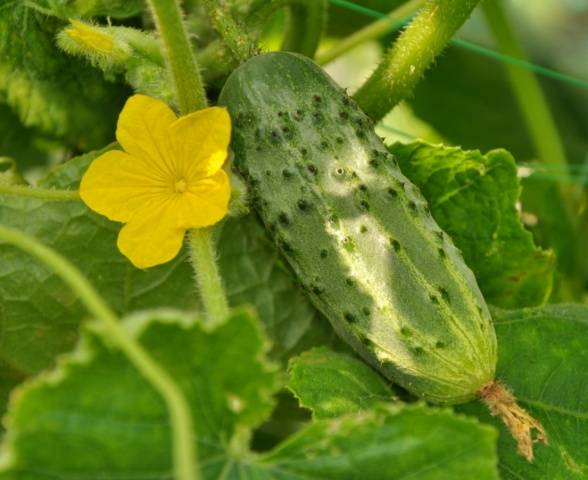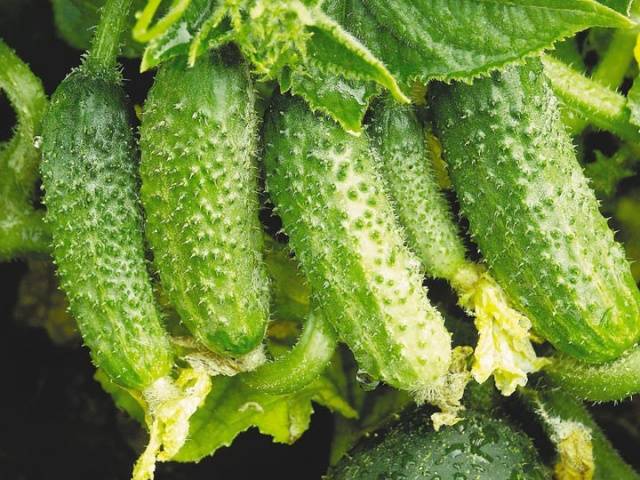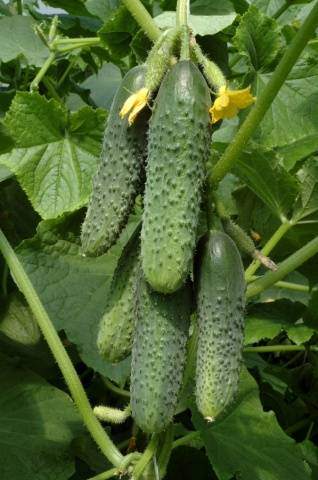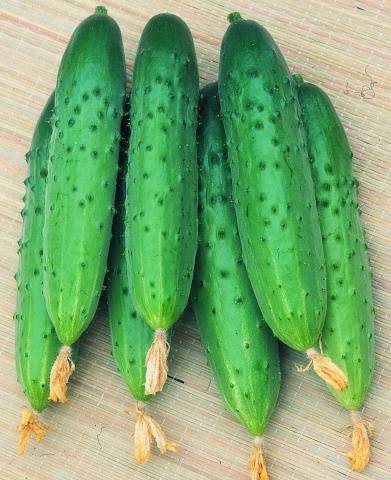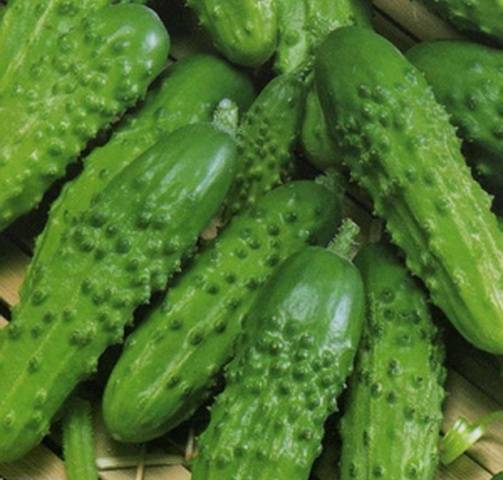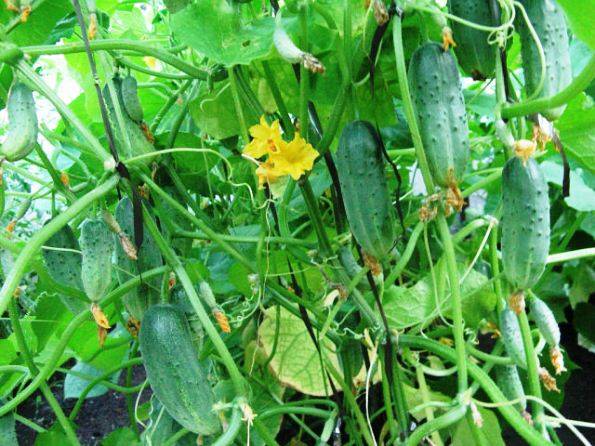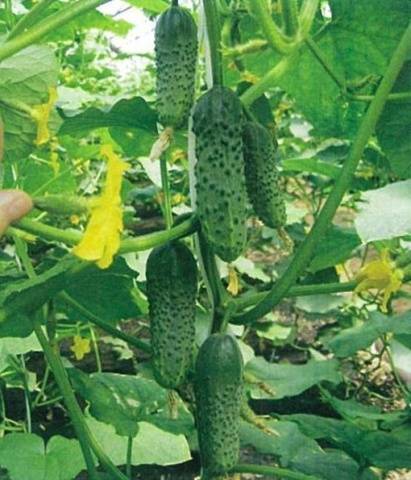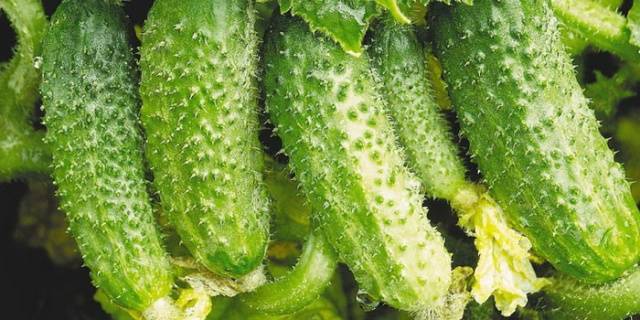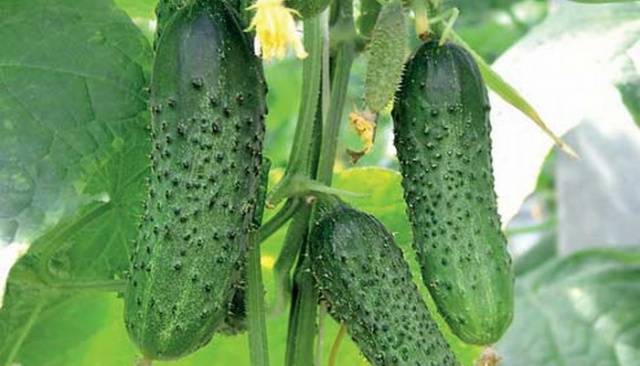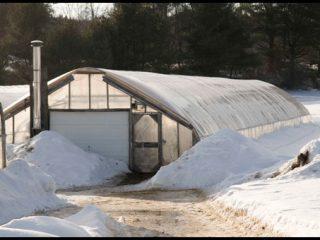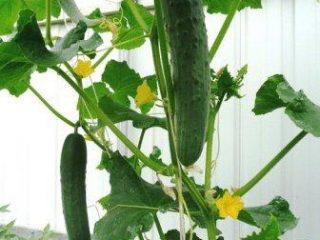Content
Cucumber is one of the most widespread and favorite vegetables in Russia. Despite the fact that the plant is distinguished by its rare thermophilicity, it has been grown for a very long time and in the middle lane, it would seem, not very adapted for this culture, especially in open ground. Nevertheless, in many regions, including the Moscow region, they achieve good and stable yields of cucumbers, moreover, by planting them both in closed ground and in open ground. The reasons for this are simply explained: competent and accurate adherence to the basic agrotechnical rules for growing vegetables, using the best and most suitable varieties and hybrids of cucumbers for any type of soil.
Climatic and natural features of the Moscow region
The Moscow region is located in central Russia, one might say, in the very heart of its European part. Therefore, like most other regions of this region of the country, it belongs, and quite rightly, to the zone of risky farming. This does not mean that growing for open ground such a culture that is quite demanding on heat as a cucumber is impossible. You just need to follow certain rules. In particular, only the best varieties and hybrids of cucumbers that meet the following basic requirements are suitable for growing in the Moscow region in the open field:
- ripening times should not exceed 45-50 days... The reasons for this are obvious and understandable - it is difficult to expect a longer warm period in the Moscow region. Thus, the early ripening varieties should be used;
- it is advisable to use self-pollinated (parthenocarpic) varieties and hybrids of cucumbers. This requirement is due to the fact that the number of warm sunny days when insects (primarily bees) are active in the Moscow region is small. And in rainy and cold weather, bees are very reluctant to move, which can cause a serious decrease in yield in dependent varieties. Self-pollinated varieties are devoid of such a relationship, therefore, they are much more stable. It should be understood that completely abandoning bee-pollinated varieties is by no means worth it - their presence in the garden contributes to higher yields and is useful even for other varieties of cucumbers;
- all other things being equal, preference should be given to universal varieties, which can be used both for salads and for canning and pickling. To a greater extent, this is a matter of taste, but such varieties and hybrids, perhaps, do not differ in particularly high yields, but they do not fall below a certain level. This is an important plus in the open field conditions of the Moscow region that are not always suitable for cucumbers.
It is also recommended by most experts to plant simultaneously from 3 to 7 hybrids or varieties of cucumbers with different properties and qualities to reduce the risk of crop failure. This will allow, even in the worst case, to guarantee the yield of some of them.
The best varieties and hybrids of cucumbers for the Moscow region
April F1
An early ripe hybrid of cucumbers, it is universal, that is, suitable both for fresh consumption and in canned or salted.
Bred for growing in the open field, it can be successfully used in conditions of film coatings (greenhouses, hotbeds).There is also a fairly successful practice of using this hybrid for growing in small balcony boxes, which once again shows the stability and versatility of the cucumber variety. This is largely due to their compactness and the ability to self-regulate branching processes. The fruits, as a rule, have a classic cylindrical shape and are rather large - their weight is 200-250 grams with a length of up to 25 cm. The hybrid has a sufficiently high index of resistance to cold temperatures, is undemanding in care, and has no bitterness.
Erofey
A cucumber variety bred specifically for central Russia. It is anti-dusting and versatile.
In terms of ripening, it belongs to the mid-season, but due to its serious resistance to cold weather, it manages to bring a solid harvest. The plant is highly branched and quite tall. Cucumbers are small in size (6-7 cm), which allows them to be attributed to gherkins. The shape is somewhat elongated, ovoid, with tubercles. Possesses high resistance to diseases such as downy mildew.
Ant F1
A hybrid that perfectly meets the above requirements. It is parthenocarpic, ultra-ripe (up to 39 days) a medium-growing variety with a strong limitation of branching cucumbers. The fruits are medium in size, reaching a length of 12 cm, the cucumbers are equipped with large tubercles.
The hybrid has a fairly high resistance to almost all the most common diseases in the middle lane: olive spot and both varieties of powdery mildew - both real and false.
Masha F1
Like the previous hybrid, it is perfectly adapted for growing in the conditions of the Moscow region. It belongs to the group of ultra-early ripening and parthenocarpic (that is, self-pollinated) varieties.
This hybrid is characterized by a high yield and a very long fruiting period.
In addition, it bears fruit in large-tuberous gherkins with excellent taste and is perfect for both salads and pickling. In addition, like almost all gherkins, they are genetically devoid of bitterness. The hybrid in question is resistant to most diseases, as well as to unfavorable weather and atmospheric conditions, which is an additional and important advantage for the Moscow region.
Competitor
A variety of cucumbers that is used both for open ground and for cultivation in greenhouses and greenhouses. It belongs to the early ripening varieties and has a high yield. Cucumbers are small in size, rarely exceeding 12 cm in length and weighing 120 g, completely covered with relatively large tubercles. Their shape is elongated-oval or elongated-cylindrical.
The variety is universal, but most experts recommend using it for salting, then its excellent taste is most fully manifested.
Spring F1
The hybrid belongs to the mid-season (up to 55 days), bee-pollinated cucumbers... It is versatile, suitable for use in any form. The fruits are devoid of bitterness, are up to 12 cm long, and their weight rarely reaches 100 grams.
Conclusion
The above best varieties and hybrids do not exhaust the widest list of varieties of cucumbers that can be successfully grown in the open field of the Moscow region. Several thousand varieties of popular vegetables are officially registered in the state register, many of which meet the difficult requirements of central Russia. Therefore, every gardener can easily find varieties or hybrids that are right for him and the best for him.
